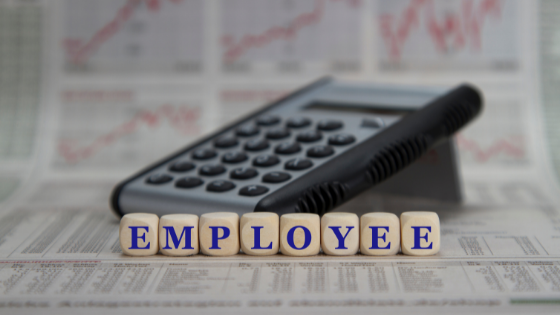
Good record keeping is important for any business and especially when it comes to employees. Keeping track of employees’ pay and entitlements is one of the obligatory responsibilities of any workplace employing staff.
Employers who don’t keep proper records or issue payslips leave the business at risk. They can find themselves in a situation where they may need to disprove a claim from an employee regarding entitlements.
But before we get to that, let’s start at the beginning.
What are employee records?
Employee records are information that you need to keep on each employee, such as
- employee details including information about commencement date, pay, leave, and hours of work
- Tax file declaration
- Superannuation choice form and details
Other records that should also be kept to provide a full employment history include:
- resumes and job applications
- contracts of employment/letter of offer
- performance reviews
- trade or registration certificates
What should you include on an employee details form?
A basic employee details form needs to include such information as
- personal details
- emergency contacts
- banking details
- declaration stating they have received the necessary information relating to their position.
It is important that this declaration includes an acknowledgment that they have received the Fair Work Information Statement.
What is an Employee Contract and why is it important?
When putting on a new employee it is important that your employment contract protects your business and your staff.
If you are unsure as to what you need to legally include in this contract, Fair Work has created an easy-to-use Employment Contract Tool found here.
This tool can be used to create a contract that meets your business needs and complies with workplace laws. It includes easy-to-understand information on all the minimum legal requirements that need to be included.
The tool can be used by any business whose employees meet the following criteria
- full-time, part-time, or casual
- covered by an award
- paid an hourly or weekly wage
Why is a super choice form important?
Employers must give their employees the ability to choose their super fund with the new My Super legislation. However, this also means that if the employee doesn’t specify a fund the employer CANNOT default to the employer’s fund of choice either, they must go online and find the last fund the employee was contributing to.
Where can I find a Tax File Declaration Form?
A Tax File Number Declaration Form needs to be completed so that the employer can work out how much tax should be withheld from payments that are made to employees.
The declaration can be filled out online or downloaded to print out a paper form here on the ATO website.
How long do employee records need to be kept?
Employers are legally required to keep some employment records for 7 years, such as:
- employee details including information about pay, leave, and hours of work
- reimbursements of work-related expenses
- workers compensation insurance for each employee
- superannuation contribution amounts
Other records relating to tax and super calculations need to be kept for 5 years.
What obligations are there regarding payslips?
Alongside the importance of paying employees correctly and on time, as an employer, it is also important to understand the legal obligations of payslips.
The legal requirements of payslips include:
- providing a pay slip within one business day of payday
- ensuring pay slips have required information, including the amount paid and tax withheld (more details on that at can be found at Fair Work )
- issuing the payslip either electronically or on paper
Not providing a payslip, or providing one without the required information, can result in a fine for the business.
Who should have access to employee records?
Employee records must be kept private and confidential. The only people able to access them should be employers, payroll, employee, and authorised users such as accountants and bookkeepers.
If an employee asks to access these records, the employer must make them available. This includes after they have ceased employment.
What happens if you don’t keep records?
If an employer hasn’t kept records or records are found to be incorrect, employers can be issued a fine, called an infringement notice. It is also illegal for employers to make or keep employment records that they know to be false or misleading.
If you need help with your payroll and ensuring that your employee records such payslips and super details meet your obligations, we would love to help.



